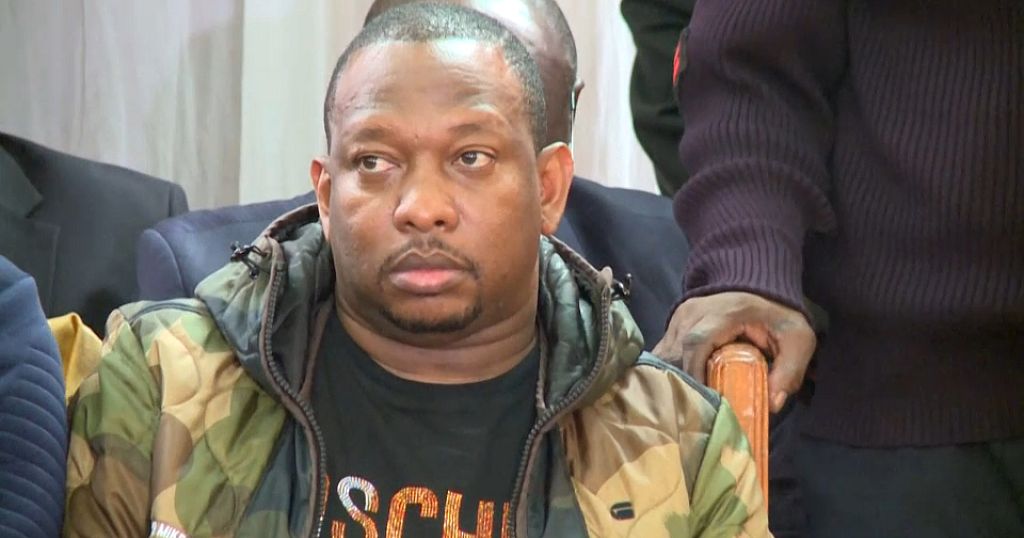President Uhuru Kenyatta used Thursday’s State of the Nation address to give an account of what the administration has done in the past year.
However, the statement was heavily loaded, but did not meet the public’s expectations. It was long on platitudes, but short on actions. Several measures highlighted in the speech have been repeated oftentimes; hence, they did not sound novel.
Significantly, their impact has not been felt.
For example, talk of an improved economy sounded unconvincing in the context of rising cost of living and pervasive famine condemning many to an early death. Universal healthcare occupies centre stage in the Jubilee administration’s development agenda but it has not taken off.
As we have reported many times in the past, the healthcare system is dysfunctional. The same applies to security and, especially, the war against terrorism.
Reform and revitalisation of agriculture, the mainstay of the economy, is pertinent. Coffee, sugar and maize, among other sectors, face a bleak future due to sheer mismanagement. Task forces have been set up and reports duly compiled to turn them around, but remedies remain scanty.
It is a paradox that many farmers are stuck with their produce for lack of market while those who sell do not get value for their yields. Farming is becoming a curse instead of a boon.
The expectation was that he would go beyond regurgitation of facts and chart out a new path in the management of public affairs; that he would institute drastic measures to turn around the economy and thrash out the challenges bedevilling the country.
Top on the list was anticipation that he would take action on corruption — specifically, taking drastic measures on Cabinet secretaries and other top government officials adversely mentioned in the vice. But that did not happen.
Instead, he only issued warnings, as he has done many times before. Moreover, he charged all institutions involved in the fight against graft and administration of justice to up their game — as he has done before.
Except for the Directorate of Criminal Investigations and the Office of the Director of Public Prosecution, the other agencies have not demonstrated zeal in the graft war.
In particular, the Judiciary is under serious scrutiny for its handling of the cases, such that although part of the problem is poor investigation, the adjudication of matters before it is painfully slow.
Corruption is the greatest threat to national development. All major development projects lined up to transform lives cannot be actualised unless we curb it and create an environment where resources can be used prudently for the intended purposes.
The strongest statement on corruption was that the government will conduct a wealth audit and interrogate how some individuals have accumulated assets. The challenge, though, is that that is not new and, from experience, is extremely difficult to execute.
He did not also confront the rising political temperatures arising from the premature campaigns for the 2022 elections. Already, Deputy President William Ruto is on the trail, criss-crossing the country in search of support for the top position.
Whereas he has the right to campaign, the ensuing division hurts the country. Groupings are forming and political tension, and division within the Jubilee Party over perceived differences between the President and the DP, is building up. That is not good for the economy.
Even so, we acknowledge the President’s commitment to unifying the country and ensuring stability.
He reiterated his commitment to the peace deal he signed with Opposition leader Raila Odinga and the subsequent roll-out of the Building Bridges Initiative. What remains, though, is for the President and Mr Odinga to convince the public that their initiative is not personality-built but an inclusive drive to steady the national ship and create a conducive environment for economic growth.
Equally, the President made a commitment to devolution — affirming that the counties must be supported to grow and, through that, empower communities at the grassroots and enable them to make decisions about their development. But that must be matched with financial support.
Counties must be properly funded. Conversely, governors and their administrations must be put on a tight leash to ensure they put all the monies to proper use.
President Kenyatta also reinforced his pledge towards the ‘Big Four Agenda’, stating that his administration will execute them within the next three years to catalyse development. Beyond the statement of intent, the onus is on the President to execute them.
But, on the whole, the President did not go far enough to give direction, especially on matters that keep bothering the citizens.

 General News2 days ago
General News2 days ago
 General News3 days ago
General News3 days ago
 General News2 days ago
General News2 days ago
 General News1 day ago
General News1 day ago
 General News6 hours ago
General News6 hours ago

